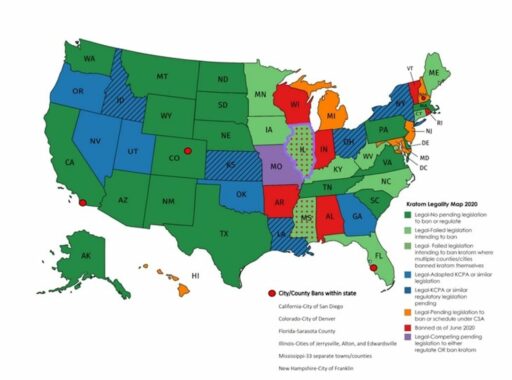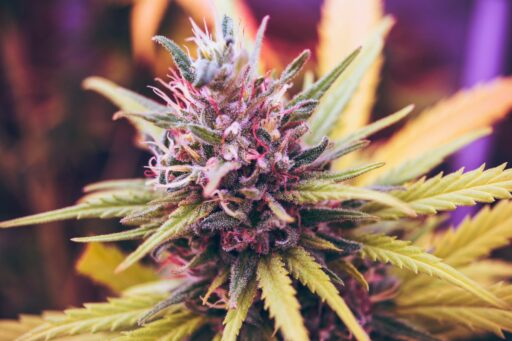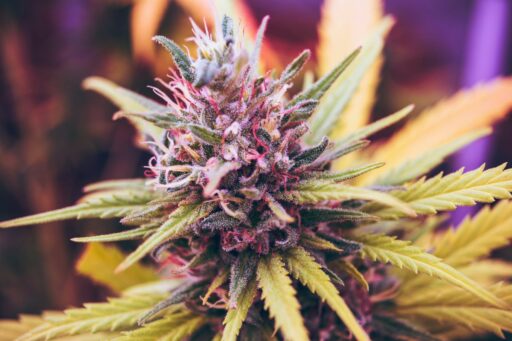In 2019, Florida took a significant step by legalizing marijuana, a decision that has had far-reaching implications for the state’s economy, legal system, social justice, public health, and political landscape. This article explores how the legalization is transforming Florida, highlighting the economic benefits, the challenges of navigating conflicting laws, the impact on criminal justice, the considerations for public health and safety, and the influence of advocacy and political contributions.
Key Takeaways
- Legalization in Florida has bolstered the economy through local business growth, increased tax revenue, and job creation, despite challenges with black market operations.
- The state faces legal hurdles, such as conflicts with federal law, licensing complexities for dispensaries, and issues related to interstate commerce.
- Social and criminal justice reforms have led to a decrease in marijuana possession arrests and the potential for expungement of past convictions, influenced by shifts in public opinion.
- Public health and safety considerations are paramount, with the state assessing health impacts, implementing educational initiatives, and training law enforcement on DUI enforcement.
- Advocacy groups and the marijuana industry have played a critical role in shaping policy through campaigns, financial support for legalization measures, and political contributions.
The Economic Impact of Legalization

Boost to Local Businesses and Tax Revenue
The legalization of marijuana in Florida has had a significant impact on local businesses and tax revenue. When marijuana sales are legalized, they are subject to taxation, which can provide a substantial boost to state and local government budgets. This influx of tax revenue can be allocated to various public services and infrastructure projects, contributing to the overall economic development of the state.
- Increased tax revenue from sales and excise taxes
- Growth in local businesses related to cannabis production and sales
- Enhanced funding for public services and infrastructure
The economic benefits extend beyond the immediate tax gains, fostering a ripple effect that stimulates ancillary markets and services.
The introduction of legal cannabis markets also encourages entrepreneurship and innovation, leading to a more dynamic business environment. This economic stimulation is evident in the rise of new dispensaries, cultivation facilities, and a range of other businesses that support the industry.
Impact on Black Market Operations
The legalization of marijuana in Florida has had a significant effect on black market operations. The shift towards a regulated market has disrupted the traditional illicit trade networks. While some illegal operations persist, the landscape has changed dramatically.
- The presence of legal dispensaries has provided consumers with safer and more reliable access to cannabis products, reducing the demand for black market alternatives.
- Law enforcement has been able to redirect resources previously spent on combating small-scale possession to tackling larger criminal organizations.
- The transparency and accountability of the legal market have made it more difficult for illegal operations to compete on price and quality.
The change in market dynamics has also had international implications, affecting the operations of organized crime groups involved in the marijuana trade.
However, it’s important to note that the black market has not been completely eradicated. Sophisticated criminal networks have adapted to the new environment, finding ways to integrate into the legal market or shifting their focus to other illegal activities.
Job Creation and Industry Growth
The legalization of marijuana in Florida has catalyzed a surge in job creation across the state. The cannabis industry has become a significant employment driver, spanning cultivation, retail, and ancillary services. This growth is not only limited to direct cannabis handling jobs but also extends to legal, marketing, and financial sectors that support the industry.
- Cultivation and harvesting
- Retail and dispensary operations
- Product manufacturing and distribution
- Ancillary services (legal, marketing, security)
The ripple effect of industry growth is evident in the diverse range of job opportunities and the professionalization of the sector. With the industry’s expansion, there is a notable shift towards more specialized roles requiring specific skills and knowledge.
According to the 2024 Marijuana Industry Statistics by Flowhub, the US cannabis industry is projected to reach nearly $40 billion. Florida, as a key player, is expected to contribute significantly to this figure, with local economies experiencing a tangible boost from the burgeoning market.
Legal and Regulatory Challenges

State vs. Federal Law Conflicts
The legalization of marijuana in Florida has brought to light the complex interplay between state and federal laws. Federal regulations continue to classify marijuana as an illegal substance, creating a dichotomy that challenges both users and businesses. For instance, while a Floridian can legally purchase cannabis within the state, they remain subject to federal penalties, including restrictions on firearm ownership for marijuana users, as highlighted by Governor Ron DeSantis’ comments on the federal gun ban for marijuana users.
- Federal law prohibits marijuana use and possession
- State law permits regulated use and sale
- Legal businesses face banking and taxation challenges
- Users risk federal penalties, despite state legality
This conflict extends to various sectors, including banking, where businesses legally operating under state law struggle to access financial services due to federal restrictions. The situation is further complicated by the Internal Revenue Service’s taxation policies, which do not allow standard business deductions for marijuana-related businesses due to the federal classification of cannabis.
The ongoing legal discord necessitates a careful navigation by stakeholders and underscores the need for a unified approach to marijuana legislation.
Licensing and Regulation of Dispensaries
The regulatory landscape for dispensaries in Florida has been evolving since the legalization of smokable medical marijuana in 2019. Dispensaries must navigate a complex web of local development restrictions and state licensing requirements to operate legally. These regulations are designed to ensure product safety, prevent diversion to the black market, and maintain community standards.
- Dispensaries are required to obtain a state-issued license.
- Compliance with stringent security measures is mandatory.
- Regular inspections by state authorities are conducted to enforce adherence to health and safety regulations.
The licensing process is rigorous, aiming to create a responsible and sustainable industry. It includes background checks, detailed operational plans, and proof of financial stability.
Despite the challenges, the regulatory framework is crucial for the legitimacy and long-term success of the marijuana industry in Florida. It balances the need for economic growth with public health and safety considerations.
Interstate Commerce and Law Enforcement
The legalization of marijuana in Florida has presented unique challenges for interstate commerce and law enforcement. Federal law still classifies marijuana as an illegal substance, creating a complex dynamic for businesses and law enforcement agencies operating across state lines. Florida’s law enforcement has had to adapt to these complexities, balancing state legality with federal prohibition.
- Coordination between state and federal agencies is crucial to navigate the legal discrepancies.
- Law enforcement officers require updated training to handle situations involving marijuana that crosses state boundaries.
- Legal businesses must be vigilant in understanding and complying with both state and federal regulations to avoid legal pitfalls.
The interplay between state legalization and federal restrictions continues to shape the legal landscape, requiring ongoing dialogue and policy adjustments to ensure a coherent approach to marijuana-related activities.
Social and Criminal Justice Reforms

Reduction in Marijuana Possession Arrests
The legalization of marijuana in Florida has led to a significant decrease in arrests for marijuana possession, aligning with trends observed in other states following legalization. This reduction not only alleviates the burden on the criminal justice system but also reflects a shift in societal attitudes towards cannabis use.
Following the legalization, data indicates a sharp decline in the number of individuals apprehended for possessing marijuana. This change has particularly impacted minority communities, which historically faced disproportionate arrest rates despite similar usage rates across racial demographics.
The decline in arrests has freed up law enforcement resources, allowing for a reallocation of police hours to address more serious crimes and community needs.
The table below illustrates the changes in arrest rates before and after legalization:
| Year | Marijuana Possession Arrests |
|---|---|
| 2018 | 12,894 |
| 2019 | 7,004 |
| % Change | -46% |
The data underscores the positive outcomes of legalization on reducing unnecessary legal entanglements for individuals carrying small amounts of marijuana.
Expungement and Resentencing of Past Convictions
The legalization of marijuana in Florida has opened the door to significant reforms in the criminal justice system, particularly concerning the expungement and resentencing of past marijuana-related convictions. Automatic expungement provisions are crucial for individuals who have been disproportionately affected by previous drug laws, allowing for the dismissal, erasure, or redesignation of their records.
Following the trend of criminal justice reform, Florida’s approach to expungement is not just about correcting past wrongs but also about reducing the long-term impacts of felony convictions. Reclassifying drug possession from a felony to a misdemeanor is a step towards lessening these impacts, offering second chances, and redirecting resources towards treatment rather than incarceration.
The process of expungement and resentencing is a complex one, involving multiple steps and legal considerations. It is a critical component of ensuring that the benefits of legalization are equitably distributed and that individuals are not unduly burdened by convictions for actions that are no longer illegal.
The table below outlines the key aspects of Florida’s expungement and resentencing policy:
| Aspect | Description |
|---|---|
| Eligibility | Individuals with certain marijuana-related offenses |
| Procedure | Legal filing and court review process |
| Outcome | Dismissal, erasure, or redesignation of records |
| Impact | Reduction in long-term consequences of convictions |
The Role of Public Opinion in Shaping Policy
Public opinion has been a driving force in the evolution of marijuana policy in Florida. The Florida Chamber of Commerce has released a new poll showing that a marijuana legalization initiative enjoys majority support, reflecting a significant shift in public attitudes. This change has compelled lawmakers to consider the will of their constituents, leading to more progressive legislation on marijuana use.
The influence of public opinion is evident in the steps taken by the state government to align laws with the preferences of Florida residents. These include:
- Engaging in public consultations to gauge sentiment
- Analyzing poll results and trends over time
- Adjusting policy proposals to reflect the prevailing public opinion
The alignment of policy with public opinion is crucial for the legitimacy and acceptance of new laws. It ensures that the democratic process is respected and that the voices of the people are heard in the legislative arena.
Public Health and Safety Considerations

Assessing the Health Impacts of Legalization
The legalization of marijuana in Florida has prompted a comprehensive assessment of its health impacts. Studies have shown a nuanced picture, with both potential benefits and concerns. For instance, increased access to regulated cannabis products has been linked to a reduction in the use of harmful opioids.
- Benefits of Medical Marijuana use in Florida: Its legalization has led to increased access to safe and regulated cannabis products, reducing reliance on potentially harmful opioids.
However, there are also worries about the rise in neonatal abstinence syndrome (NAS) rates, which may be associated with the policies. The effects on crime rates have been minimal, with research indicating no significant impact on major crimes in states with legalized marijuana.
The ongoing evaluation of health outcomes is crucial to understanding the full spectrum of legalization’s effects and guiding future policy decisions.
Educational Initiatives and Youth Prevention
In the wake of marijuana legalization, Florida has placed a significant emphasis on educational initiatives and youth prevention. These programs are designed to inform young people about the potential risks associated with marijuana use and to discourage substance abuse.
- School-based drug prevention programs have been implemented, focusing on educating students about the dangers of drug use.
- Collaborative efforts with mental health organizations aim to provide comprehensive substance use prevention and treatment.
- The state has also invested in creating process indicators to improve educational governance and assess the effectiveness of these initiatives.
The goal of these educational programs is not only to prevent drug use among youth but also to foster a broader understanding of health and safety related to substance use.
Despite these efforts, challenges remain, such as overcoming the stigma associated with substance use and ensuring that prevention messages are effectively reaching all demographics.
Driving Under the Influence and Law Enforcement Training
With the legalization of marijuana, Florida has seen a need to adapt its approach to driving under the influence (DUI) enforcement. Law enforcement agencies have been updating their training programs to better detect and manage DUI cases involving marijuana. This includes understanding the distinct signs of impairment caused by cannabis compared to alcohol and other substances.
- Enhanced DUI training for officers
- Development of new roadside testing protocols
- Collaboration with organizations like Drug Free America and Mothers Against Drunk Driving
The Office of Medical Marijuana Use released a report detailing the progress in DUI program training, highlighting the importance of continuous education for law enforcement personnel. The report, dated June 23, 2023, underscores the collaborative efforts with various stakeholders to improve DUI recognition and management.
The integration of specialized training into law enforcement curricula is essential to ensure that officers are equipped with the knowledge and tools necessary to address DUI incidents effectively, maintaining public safety in a landscape altered by the legalization of marijuana.
The Influence of Advocacy and Political Contributions

Campaigns and Financial Support for Legalization Measures
The push for marijuana legalization in Florida has seen significant financial backing, with campaigns and advocacy groups channeling millions into the effort. In 2022, groups supporting state ballot measures attracted a staggering $945 million during the midterm elections, underscoring the financial heft behind these initiatives.
Financial contributions from the marijuana industry have been substantial. In 2021 alone, over $4.2 million was spent on lobbying for various issues, including the legalization of cannabis at the federal level. This trend continued into the following year, with the industry and advocates pouring over $9.8 million to support cannabis legalization ballot measures in multiple states.
The involvement of major donors and the substantial funds raised reflect the growing influence of the marijuana industry in shaping public policy.
The table below summarizes the financial contributions to cannabis legalization efforts:
| Year | Amount Spent on Lobbying | Amount Supporting Ballot Measures |
|---|---|---|
| 2021 | $4.2 million | N/A |
| 2022 | N/A | $9.8 million |
The Role of Advocacy Groups in Policy Change
Advocacy groups have been instrumental in shaping the landscape of marijuana legalization in Florida. Their persistent lobbying efforts and strategic campaigns have significantly influenced legislative changes. These organizations often serve as a bridge between the public’s desires and the legislative process, ensuring that the voices of citizens are heard in the halls of power.
- They collaborate with lawmakers to draft and promote bills favorable to marijuana reform.
- They mobilize public support through education and awareness campaigns.
- They provide policy expertise and legal resources to facilitate the enactment of laws.
Advocacy groups have not only contributed to the policy change but have also played a key role in shifting public perception towards the acceptance of marijuana.
The success of these groups can be attributed to their ability to unite stakeholders from various sectors, including health professionals, legal experts, and civil society, to create a comprehensive approach to marijuana policy reform.
Analysis of Political Contributions from the Marijuana Industry
The financial influence of the marijuana industry on political campaigns has been substantial, with over $9.8 million contributed to support cannabis legalization measures in various states. This influx of capital underscores the industry’s commitment to shaping policy and expanding its legal footprint.
In 2021 alone, the industry spent more than $4.2 million on lobbying efforts, targeting a range of issues including federal marijuana legalization. The strategic deployment of these funds reflects the industry’s broader objectives and its increasing role in legislative advocacy.
The magnitude of political contributions from the marijuana industry reveals a concerted effort to influence policy and align it with business interests.
The table below summarizes the reported contributions for cannabis legalization efforts:
| Year | Amount Contributed |
|---|---|
| 2022 | $9.8 million |
| 2021 | $4.2 million |
These figures represent a significant investment in the political process and suggest that the industry’s influence is likely to continue growing as legalization expands.
Conclusion
As Florida continues to navigate the complexities of marijuana legalization, the state’s experience since 2019 has been a testament to the evolving landscape of cannabis policy in the United States. While the legalization has undoubtedly created economic opportunities and reduced the burden of criminalization for many, it has also highlighted the challenges of regulating a substance that remains illegal under federal law. The state’s approach to licensing, taxation, and law enforcement has had to adapt to the realities of a burgeoning black market and the ongoing national debate over marijuana policy. Moreover, the conversation around expungement of past marijuana-related convictions reflects a growing recognition of the need for criminal justice reform in the era of legalization. As Florida and other states continue to refine their marijuana policies, the lessons learned will be crucial for informing future legislation and ensuring that the benefits of legalization are equitably distributed.
Frequently Asked Questions
What has been the economic impact of marijuana legalization in Florida?
The legalization of marijuana in Florida has led to a boost in local businesses and tax revenue, impacted black market operations by providing legal alternatives, and created job opportunities along with industry growth.
How has legalization affected the legal and regulatory landscape in Florida?
Legalization has introduced challenges such as conflicts between state and federal laws, the need for strict licensing and regulation of dispensaries, and issues surrounding interstate commerce and law enforcement.
What social and criminal justice reforms have emerged since legalization?
Since legalization, there has been a reduction in marijuana possession arrests, initiatives for expungement and resentencing of past convictions, and a significant influence of public opinion on shaping drug policy.
Are there any public health and safety considerations related to legalization?
Yes, assessing the health impacts of legalization is ongoing, and there are educational initiatives and youth prevention programs in place, as well as law enforcement training to address driving under the influence.
What role have advocacy and political contributions played in legalization?
Advocacy groups and the marijuana industry have played a significant role in policy change through campaigns, financial support for legalization measures, and political contributions.
Has the legalization in Florida affected the black market for marijuana?
Legalization has created legal avenues for purchase, which can reduce black market demand. However, steep taxes on legal products and gaps in law enforcement have allowed a black market to persist.





